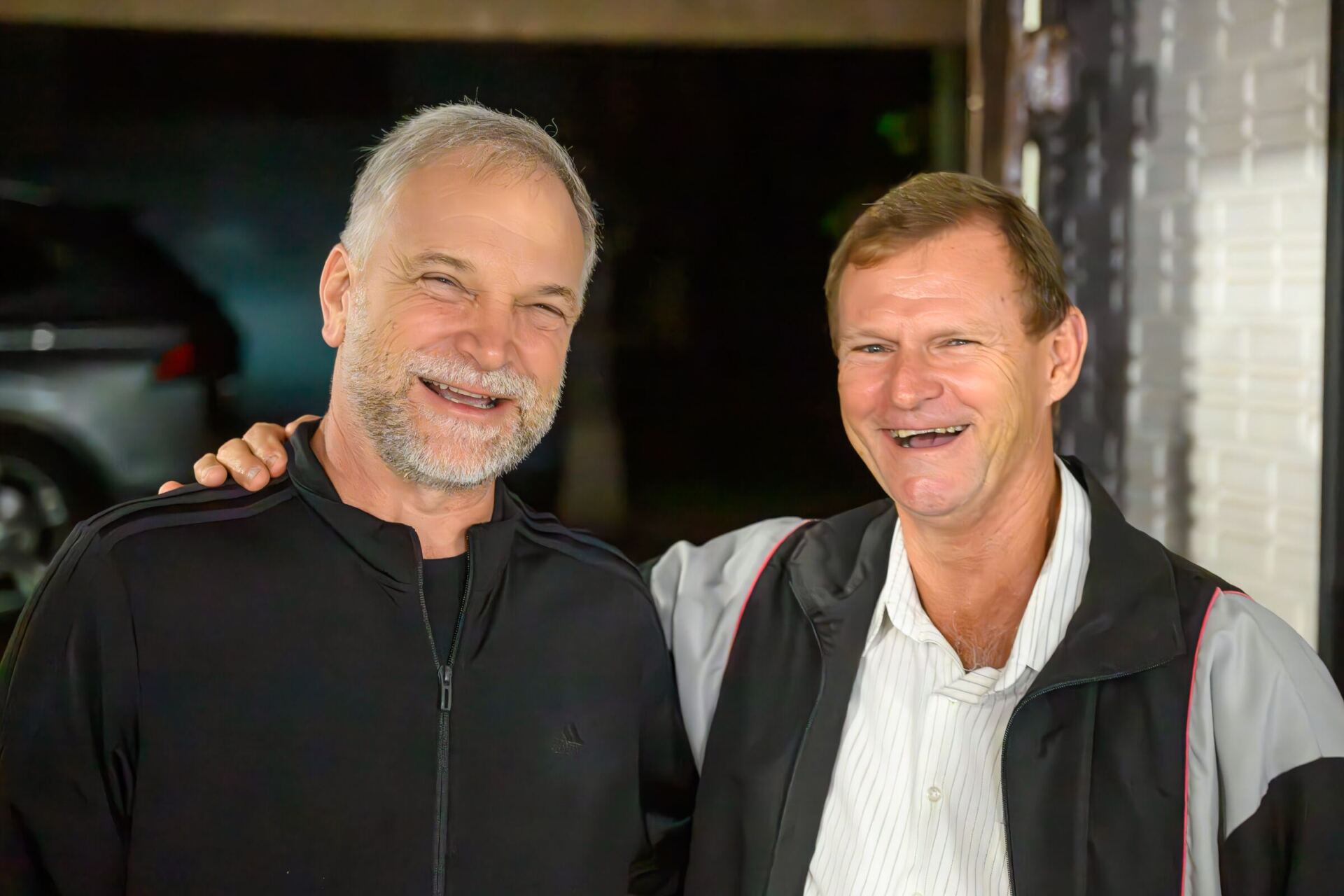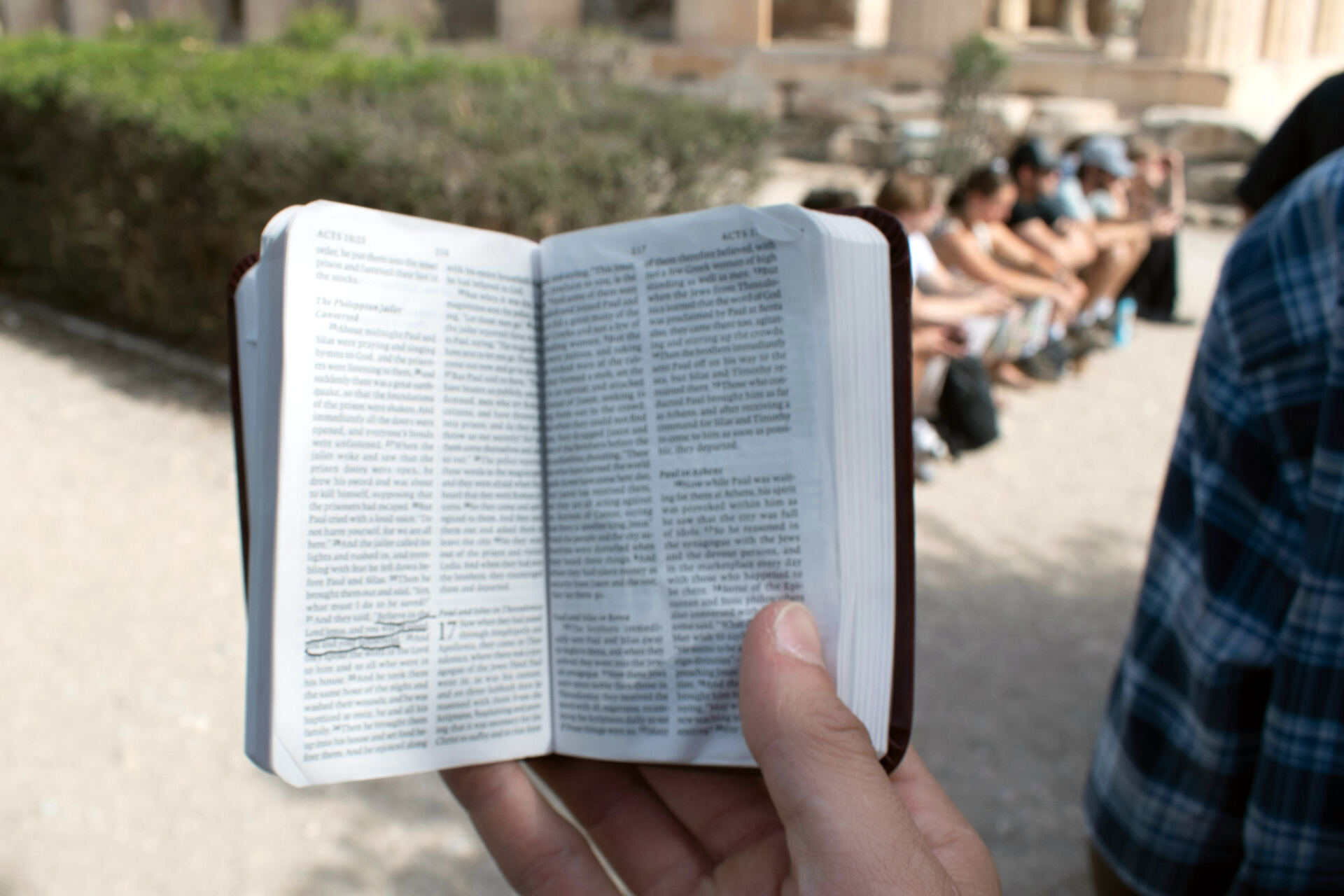“On the glorious splendor of your majesty, and on your wondrous works, I will meditate.” (Psalm 145:5)
Good words are often abducted by bad connotations. When we think of meditation in a contemporary context, our minds likely go to New Age spiritualism and an emptying of one’s mind and heart to allow the universe, or some other amorphous force, to fill the void with insight and direction. We may also think of Eastern religions like Buddhism that use meditation in pursuit of a higher sense of reality or an ethereal existence of serenity. Meditation, however, is a profoundly Christian practice and has been for millennia. As with the rainbow, which the LGBTQ movement has tried to distort, we cannot allow meditation to fall by the wayside because it is so often misused. True meditation is reading, thinking deeply about, and digesting the Word of God in such a way that its effects flow out of us.
Our lives are overrun with microwaved relationships and schedules that are bursting at the seams. The noise of advertisements, traffic lights, and unread emails clamors to fill every nook and cranny of our consciousness and often succeeds. While these things may not be sinful in and of themselves, the devil uses them to occupy us with enough daily cares that the tyranny of the urgent marginalizes the practices that preserve and grow our spiritual health. In short, we don’t have time to meditate on anything because our mental powers are devoted to making sure we keep all the plates spinning for at least one more day.
When you ask others, “How are you?” a majority probably say, “Busy.” Busyness is not a sin, but it is often an enemy of sanctification. If the devil cannot succeed in tempting us to sin, he is content to keep us busy.
David’s resolution in Psalm 145:5 precluded the possibility of allowing busyness to hold supreme authority in his life. He would not allow his duties as king—as honorable and necessary as those duties were—to prevent him from spending silent time with the Lord in his Word.
David says that he will meditate on two things. The first refers to God’s character: “the glorious splendor of your majesty.” We could do nothing but meditate from this moment until Christ returns and have barely scratched the surface of the majesty of the divine being. There is such spiritual benefit in setting aside the distractions of the world and simply meditating on God’s goodness, holiness, justice, mercy, and all his other perfections. The spiritual strength we gain from such a practice is immeasurable.
Moses warns the people of Israel, “Take care lest you forget the LORD your God by not keeping his commandments and his rules and his statutes” (Deuteronomy 8:11). Forgetfulness of God leads directly to disobedience to God. When we cease to set our minds on who God is, we soon cease to prioritize obedience to him.
Second, David says that he will meditate “on your wondrous works.” Not only are we to meditate on who God is but also on what he has done. This refrain appears over and over in the Old Testament. One example occurs when, before God gives the first of the Ten Commandments, he says, “I am the LORD your God, who brought you out of the land of Egypt, out of the house of slavery” (Exodus 20:2). God points Israel to its history and to his faithfulness in order to impress upon the people that he will do all that he has said and that they have a covenant obligation to be faithful in return.
The last words of the martyr Polycarp, who died in the middle of the second century, exemplify this well: “For eighty and six years I have been his servant, and he has done me no wrong. And how can I now blaspheme my king who saved me?”
Considering the faithfulness of God to us is paramount in our remaining faithful to him. We cannot expect to walk in purity and obedience if we neglect to meditate on his wondrous works, both in our personal lives and in his global church.
David’s commitment to this practice should be a challenge to each of us. When was the last time you set aside uninterrupted time to truly meditate on who God is and what he has done?
If we are to be effective in our spheres of ministry, we must cultivate a biblical practice of meditating on God’s Word. If we fail to be faithful in meditation, we may quickly busy ourselves into uselessness or apostasy.
Prayer:
Heavenly Father,
Preserve us from the spiritual harm that often comes from busyness. Teach us to be quiet before you, that we may meditate on the glorious splendor of your majesty and on your wondrous works. Keep us spiritually awake so we may walk in obedience to you.
In your Son’s name, Amen.
Prayer Requests:
- Pray for ABWE’s Critical Care Counseling team as they provide spiritual refreshment and peace to those facing the new and sometimes-overwhelming challenges and stresses of cross-cultural missions.
- Pray that you would grow in your knowledge of God as you meditate on his character. Use resources like this to assist you in that growth.
- Pray that the Lord’s people would stand firm against the devil’s attempts to use busyness to distract them from meditating on the Lord and serving him in ministry.






